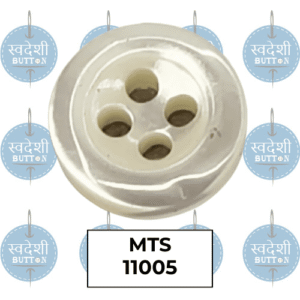Understanding Kosher Certification: A Guide to Clean and Ethical Food Standards

Kosher Certification
In today’s diverse and informed market Kosher Certification, more consumers are paying attention to how their food is produced—not just what’s in it. One label that often raises interest and questions is “kosher certified.” But what does that actually mean? Kosher certifications is a mark of assurance that food and related products meet the requirements of Jewish dietary laws. At the same time, it reflects a wider commitment to cleanliness, ethical preparation, and transparency.
Let’s break down what certification involves, why it matters to different consumers, and how businesses benefit from it.
What Does Kosher Certification Really Mean?
“Kosher” is a Hebrew word meaning “fit” or “proper.” In the context of food, it refers to items that comply with Jewish dietary rules, known as kashrut. These rules cover everything from the types of animals that can be eaten to how they are slaughtered, prepared, and stored.
Some core principles include:
-
Prohibition of pork and shellfish.
-
No mixing of meat and dairy.
-
Only animals that chew cud and have split hooves (like cows and sheep) are permitted.
-
Animals must be slaughtered in a humane, prescribed manner.
Kosher certification confirms that a food product has been reviewed and approved by a rabbinic authority and meets these dietary laws.
Why Do People Look for Kosher Certification?
Kosher Certification is crucial for Jewish individuals who observe dietary laws. But it also appeals to many non-Jewish consumers. Here’s why:
-
Religious Observance: For observant Jews, certified kosher food is a must.
-
Trust in Quality: Kosher-certified products go through careful inspection, making them attractive to those who value food safety and integrity.
-
Food Sensitivities and Allergies: Since kosher certifications involves strict ingredient control, many people with allergies choose kosher foods.
-
Ethical and Clean Practices: The kosher process promotes high hygiene standards and animal welfare, which appeals to ethically conscious consumers.
How Kosher Certification Works
Getting Kosher Certification is not a simple formality. It’s a detailed process designed to maintain strict religious and ethical standards:
-
Initial Application: A business applies through a Kosher Certification agency.
-
Facility Review: Inspectors known as mashgichim (kosher supervisors) visit production sites to assess ingredients, equipment, and procedures.
-
Ingredient Approval: Every ingredient must meet kosher standards, which may require detailed sourcing or supplier certifications.
-
Ongoing Monitoring: Certification isn’t a one-time check. Agencies conduct regular audits to ensure continued compliance.
-
Labeling: Once certified, the product receives a recognizable kosher symbol, or hechsher, which appears on packaging.
Recognizable Kosher Symbols
There are many Kosher Certification bodies, each with its own logo. Some well-known symbols include:
-
OU – Orthodox Union
-
OK – OK Kosher Certification
-
Kof-K – Kosher Supervision Service
-
Star-K – Star-K Kosher Certifications
These logos help consumers easily identify kosher-certified products on shelves.
Why Businesses Choose Kosher Certification
For companies in the food, beverage, or cosmetics industry, kosher can provide a real competitive edge:
-
Market Expansion: Certification opens access to Jewish communities worldwide and appeals to a broad base of conscious consumers.
-
Brand Trust: A kosher label signals high-quality standards, boosting customer confidence.
-
Export Potential: Many countries and retailers require or prefer kosher certification for imported goods.
-
Increased Sales: Kosher-certified products often appeal to a variety of shoppers beyond those observing religious rules.
Read Also – Kosher Certificate in India: Why It Matters for Global Trade
Beyond Food: Kosher in Non-Food Products
It may come as a surprise, but Kosher Certification isn’t limited to food. Products such as medicines, cosmetics, and even cleaning supplies can be kosher certified. This matters because certain ingredients in these items might be derived from animal sources, and religious consumers want assurance of purity.
Clearing Up Common Myths
There are a few misunderstandings about what kosher means. Let’s address them:
-
Myth: Kosher = Healthy. Kosher laws aren’t about nutrition. You can have kosher-certified sweets or processed snacks. The focus is on preparation and ingredients, not health.
-
Myth: Kosher Is Only for Jews. While rooted in Jewish tradition, many people choose kosher for reasons unrelated to religion—like food safety, hygiene, and transparency.
-
Myth: It’s Too Expensive. Some kosher products cost more due to the certification process, but many are competitively priced.
Final Thoughts
Kosher certification is more than a religious symbol—it’s a trusted indicator of how food and related products are sourced, prepared, and handled. It ensures transparency, purity, and a level of ethical care that resonates with a wide range of consumers.



